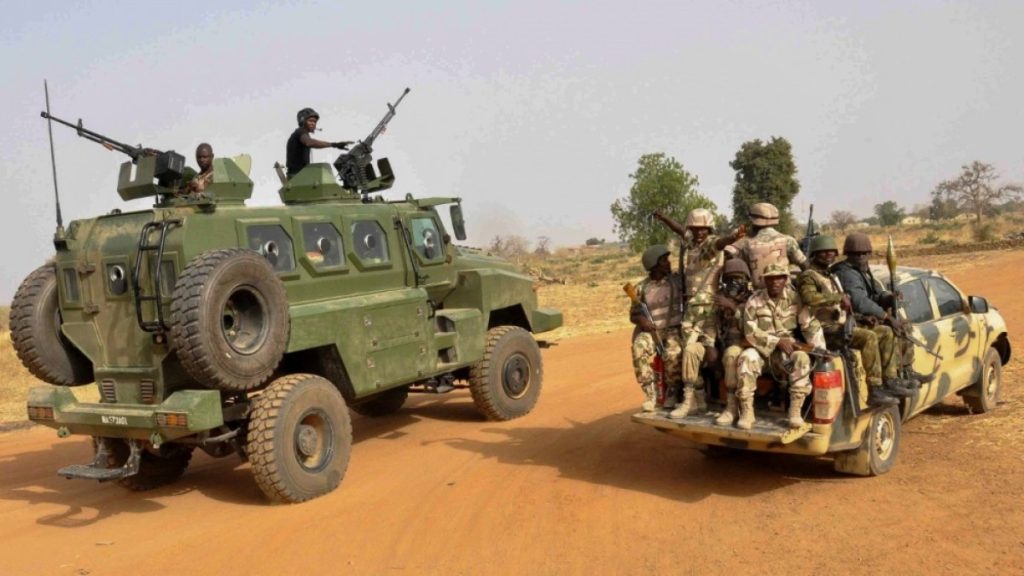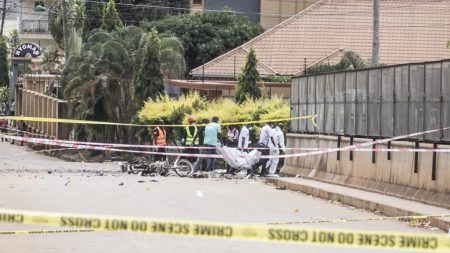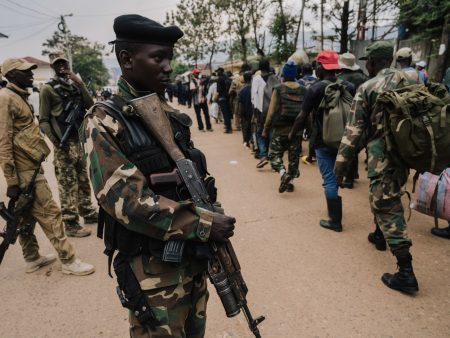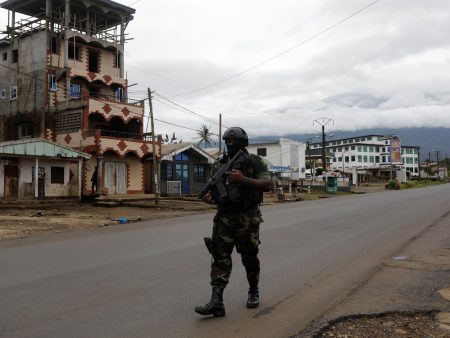The recent attack on farmers in Nigeria’s northeastern Borno State underscores the persistent threat posed by extremist groups in the region. At least 40 farmers were tragically killed in Dumba, a village situated on the shores of Lake Chad, highlighting the vulnerability of civilians caught in the crossfire of the ongoing conflict. Government officials have pointed fingers at Boko Haram and its splinter group, ISWAP (Islamic State in West Africa Province), as the likely perpetrators of this horrific act. These groups, known for their violent insurgency and brutal tactics, have long plagued the region, leaving a trail of devastation in their wake. This latest incident serves as a grim reminder of the ongoing struggle to restore peace and security in northeastern Nigeria.
The attack unfolded late on Sunday when suspected militants rounded up dozens of farmers in Dumba and mercilessly shot them dead. The details of the attack paint a picture of calculated violence and underscore the precarious situation faced by civilians in areas where these extremist groups operate. The attack has sparked outrage and grief, prompting the Borno State government to order a swift military response. Soldiers have been tasked with tracking down and eliminating the insurgents responsible for the attack and dismantling their enclaves in the Lake Chad region, a notorious haven for both Boko Haram and ISWAP fighters. This area, riddled with landmines and vulnerable to nighttime attacks, presents significant challenges for both the military and the civilian population.
Adding another layer of complexity to the incident, government officials have stated that the farmers had ventured beyond the designated safe zones established by the armed forces. These zones are areas deemed relatively secure from militant activity and where farming and fishing activities are permitted within specific boundaries. The farmers’ transgression into restricted territory may have inadvertently exposed them to the lurking danger posed by the insurgents. While this detail does not diminish the gravity of the attack or absolve the perpetrators of responsibility, it highlights the precarious balance between civilian livelihoods and security concerns in conflict zones.
The attack has prompted calls for a thorough investigation by the armed forces to determine the precise circumstances surrounding the incident and to identify those responsible. Governor Babagana Umara Zulum has also emphasized the importance of civilian adherence to the designated safe zones, underscoring the need for heightened vigilance and strict adherence to security protocols to mitigate the risks posed by the insurgent groups. The incident serves as a stark reminder of the challenges involved in balancing civilian needs with the imperative to protect lives in areas prone to extremist violence.
Lake Chad, a vast body of water spanning Nigeria, Niger, Cameroon, and Chad, has become a strategic stronghold for Boko Haram and ISWAP. Its intricate network of waterways and islands provides ideal cover for these groups, allowing them to evade detection, launch attacks, and regroup. This geographical advantage has made it a focal point in the fight against insurgency, and the region continues to witness clashes between government forces and militant groups vying for control. The ongoing instability in the Lake Chad basin has displaced millions and created a complex humanitarian crisis.
The roots of the conflict can be traced back to 2009 when Boko Haram, whose name roughly translates to “Western education is forbidden,” launched its violent campaign to impose a strict interpretation of Islamic law. Since then, the group has carried out countless attacks on civilians, government institutions, and security forces, leaving a trail of destruction and displacement in its wake. The conflict has claimed the lives of an estimated 35,000 civilians and displaced over two million, creating a profound humanitarian crisis. The ongoing struggle to contain and defeat these extremist groups continues to pose a significant challenge to regional stability and security. The recent attack on farmers in Dumba serves as a tragic reminder of the human cost of this prolonged conflict and underscores the urgent need for concerted efforts to bring peace and stability to the region.










